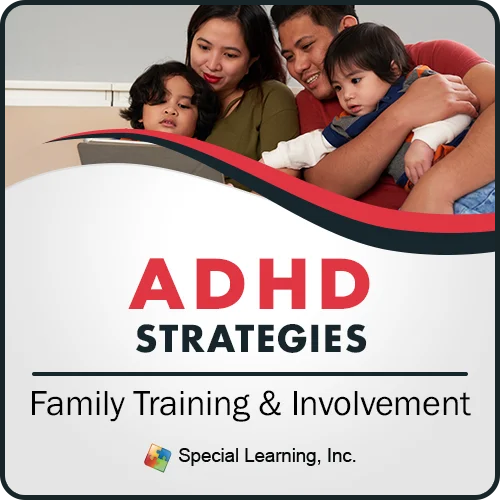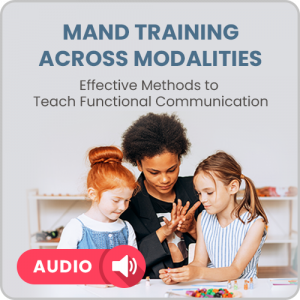Medical Treatments
The second most common question after identifying where your child fits into the Autism Spectrum Disorder is, “What treatment is best for my child?” There are many available options yet each child’s case differs and each has different needs. There is no one specific treatment used for all special needs children, but here are some of the best researched and most popularly used:
1. Applied Behavioral Analysis (ABA) Therapy
The oldest and most researched intervention program for autism is Applied Behavioral Analysis (ABA) therapy. It intensively focuses on reward-based training to teach particular skills. ABA therapy is the program most likely to be covered by your insurance or offered by the child’s school.
The goal of ABA therapy is to develop the child’s ability to function independently in a variety of social situations and environments. This method is generally recommended to any special needs person regardless of age and gender. If properly administered, ABA therapy can have a significant effect on the development of an autistic child.
2. Speech Therapy
People with autism usually have speech and communication disorders, which can be improved by undergoing speech therapy with a duly certified speech pathologist or therapist. Children in both the lower and higher ranges of the autism spectrum can benefit from this therapy.
A speech therapy session can be conducted in clinics, private settings, institutions, or schools. A wide range of tools and procedures may be employed, from using toys for play-like therapies to giving formal tests using speech curricula. The therapist may work on a wide range of skills:
● Non-verbal Communication is taught by using techniques such as gestural communication, PECS or picture exchange cards, electronic talking devices, and other non-verbal communication tools.
● Speech Pragmatics teaches the child to know not only how to say words but also when, how, and to whom it has to be said.
● Conversation Skills involve knowing how to participate in a joint-attention conversation.
● Concept Skills are taught by the therapist in order for the child to understand the ideas behind words.
3. Occupational Therapy
Occupational therapy helps autistic children develop skills that are useful for everyday living like handwriting, buttoning a shirt, or tying shoelaces. More complex skills such as sensory integration will also be taught depending on the child’s condition. In general, occupational therapists focus on an autistic person’s social and personal skills needed for independent living. Some examples are:
● Helping a child to better manage his body in space by engaging in activities such as swinging, brushing, playing, etc. By doing this, a child learns to respond to information coming through his senses.
● Engaging the child in structured play therapies can develop and build intellectual, emotional, and physical skills. A good example of this technique is Floortime.
● Helping children with ASD devise transition strategies to help deal with changes in the environment. Examples could include transitioning from home to school or going to a store.
● Developing alternate strategies to replace disabilities. For example: teaching an autistic person to use keyboards if handwriting is impossible due to dexterity problems.
4. Social Skills Therapy
In general, people with autism do not have appropriate social skills nor do they have a normal grasp of tone and body language. “Mindblindness”, as it is called, may cause problems for an autistic child who does not have the ability to distinguish which actions or words can hurt or offend. This problem can lead to more serious problems such as bullying, isolation, or teasing from people around them. Social skills therapy focuses on improving a diagnosed child’s ability to interact appropriately with others.
The goal of social therapy might be described as helping a child with autism to become indistinguishable from other non-autistic children. It teaches a special person how to converse, play, work and share with others according to socially accepted norms.
Social therapy may be done in the classroom by a psychologist using game playing, sharing, and conversational practice. There are also out-of-school social groups that are privately paid as insurance companies are unlikely to cover these therapies.
5. Physical Therapy
Physical Therapy helps autistic people who have motor delays and have weak muscle tone to build up strength, coordination, and have basic sports skills.
6. Play Therapy
Learning to play is essential for children with autism as it also helps in developing their speech, communication, and social skills. Play therapists may use techniques such as Floortime or The Play Project in their sessions.
7. Behavior Therapy
This type of therapy analyses a person with autism’s source of frustration and recommends changes to the environment and routines to improve behavior. Behavior therapists ease a special child’s frustration from inability to communicate their needs; hypersensitivity to light, sound, or touch, and other acute behaviors.
8. Developmental Therapy
Developmental therapy is used to help increase the emotional, social, and intellectual abilities of a child. Often, this type of therapy is combined with behavioral therapy to best teach basic skills like tooth brushing or shoe tying.
The common treatments used in this type of therapy are Floortime, Son-rise, and Relationship Development Intervention (RDI).
9. Visually-Based Therapies
The Visually-based therapies make use of picture-based communication systems such as PECS (Picture Exchange Communication), video modeling, video games, and electronic communication systems, which can be very useful in building skills and communication for people with autism.
10. Biomedical Therapies
Board-certified doctors who are trained in the Defeat Autism Now! (DAN!) approach prescribe special diets, supplements, pharmaceuticals, and alternative treatments to people within the autism spectrum. All these said treatments have no FDA and CDC approval yet have been used successfully in many studies.
Copyright © by Special Learning Inc. All right reserved.
No part of this article may be reproduced in any manner whatsoever without written permission except in the case of brief quotations embodied in critical articles and reviews. For information, contact Special Learning Inc., at: contact@special-learning.com








